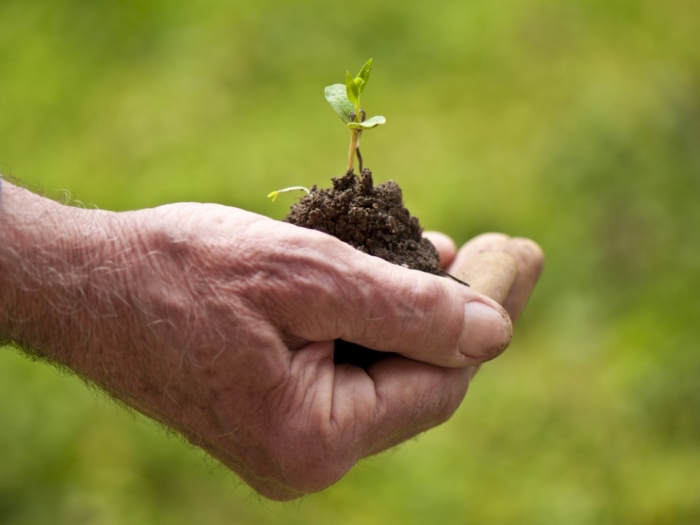You are here
Home 🌿 Cannabis Technology News 🌿 Paving The Way For The Future Of Farming - With Organic Cannabis Soil 🌿Paving The Way For The Future Of Farming - With Organic Cannabis Soil

Cannabis is one of the fastest growing industries in the United States, and thanks to people like John-Paul Maxfield, it’s also rapidly becoming one of the most forward thinking – and (with any luck) trendsetting.
Maxfield is the founder of Waste Farmers, the sustainable agriculture B Corp in Denver, CO whose organic potting soil is the fertilizer of choice for a growing number of cannabis farmers far and wide.
“This is a new generation of farmers that are excited about [innovation],” Maxfield tells Civilized.
“Cannabis is the fastest growing industry in the nation by some measures and certainly in agriculture... imagine if we could apply that passion and technology toward food at some point, toward other broader things.”
For Maxfield, this mission of “pushing the adoption of a new food and agriculture system”, has always been the end goal. In fact, it's also what got him into business in the first place.
His first endeavor involved gathering food waste from schools and restaurants, turning it into compost, and selling it to indoor farmers with minimal impact on the environment. But the work was difficult and not particularly profitable, so when Colorado’s cannabis legislation came into effect in 2013, Maxfield had another idea.
He and his team developed Batch 64, a coconut coir-based organic soil that quickly captured the attention of cannabis farmers within and without the state. Each of its three different blends - Moonshine, Pioneer and Golden Ratio - is engineered with natural ingredients “to produce maximum yields and quality crops.”
This entrepreneurial detour of sorts fits in with Maxfield’s original vision, he says, because “marijuana farming can be a gateway to [other kinds of] farming.”
“We want to disrupt industrial food and agriculture... because if industrial agriculture continues, we’re going to be in tough shape as a species,” says Maxfield.
“In order to disrupt things, you can either go into the industrial agriculture [space] and offer a cheaper alternative, or you can go to a market that doesn’t really exist or is nascent, develop a series of capabilities, gain size, then go back and dismantle broader things.”
In other words, Maxfield is confident that more innovative and sustainable methods of growing cannabis could pave the way for the future of farming as a whole. Without cannabis, the innovations necessary to ensure a healthy (and adequately fed) planet for tomorrow could spend a lot longer in the shadows, he says.
“The legalization of [cannabis] is going to have more of an impact on the future of how we grow food... sustainably on this planet than anything else,” says Maxfield, who believes this fact alone should convince decision makers that cannabis legalization is the only way forward.
“Things are changing so fast because [the cannabis industry has attracted] this capital and attention and ability to create value that’s sparking a lot of innovation. It’s going to unlock some great things with regard to how we grow food in the future. And we need that.”
420 Intel is Your Source for Marijuana News
420 Intel Canada is your leading news source for the Canadian cannabis industry. Get the latest updates on Canadian cannabis stocks and developments on how Canada continues to be a major player in the worldwide recreational and medical cannabis industry.
420 Intel Canada is the Canadian Industry news outlet that will keep you updated on how these Canadian developments in recreational and medical marijuana will impact the country and the world. Our commitment is to bring you the most important cannabis news stories from across Canada every day of the week.
Marijuana industry news is a constant endeavor with new developments each day. For marijuana news across the True North, 420 Intel Canada promises to bring you quality, Canadian, cannabis industry news.
You can get 420 Intel news delivered directly to your inbox by signing up for our daily marijuana news, ensuring you’re always kept up to date on the ever-changing cannabis industry. To stay even better informed about marijuana legalization news follow us on Twitter, Facebook and LinkedIn.





